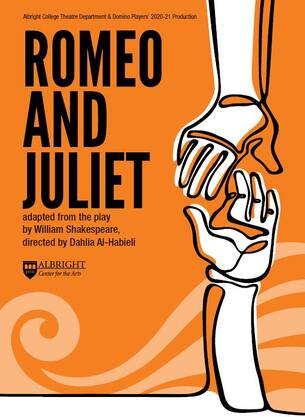|
Student Collaborators: Libni Rivera ‘24, Katsuto Sakogashira ‘21, Kyle Zayas ‘23, Julia Corrado ‘21, Aly Tu ’22, McKenzie Sullivan ‘22, Andrew Svarczkopf ‘21
Mercutio’s death marks the violent turning point of the story, where we swing from romantic comedy to unstoppable tragedy. As we unpacked Scene 1, we were struck by Mercutio’s pointed references to Tybalt as “The Prince of Cats,” and pondered the significance of the title. Libni proposed that Mercutio was implying Tybalt a coward, and her guess was actually pretty close to correct, though for relatively obscure reasons. We have noted Mercutio’s rich and varied literary and cultural allusions in earlier scenes, and this play on Tybalt’s name is yet another example of this. Tybalt is the name of a character from medieval folktales; he is often the subject of ridicule in the stories of Reynard the Fox, and fails to live up to the bravery of his royal father. Elizabethan audiences would likely have been familiar with these stories and understand Mercutio’s implicit insults. Another puzzle to unpack is why Tybalt re-enters the scene after fleeing. Kenzie made the excellent point that, while the answer to this question might seem minor in the grand scheme of everything that happens in this scene, let alone the entire play, it is still a question that the actor playing Tybalt must make a clear choice about. For all the overarching choices a production team or director might make, performers must make decisions about their character and the story beat by beat even if the reasons for those choices aren’t made explicit to the audience. As Romeo is becoming “fortune’s fool,” Juliet joyfully waits for her love to arrive. We noted how Juliet’s language evolves between Acts 2 and 3. While she reaches for a tellingly youthful way to describe her impatience as akin to the way a child feels waiting for permission to wear new clothes, her opening soliloquy in Scene 2 also echoes and mirrors the more sophisticated celestial imagery of the balcony scene. While Romeo compared Juliet to the moon, here she calls him the sun. Both are each other's light in the dark. Throughout our conversations about the play, we have framed the conversations around the question of why Shakespeare makes the choices that he does, particularly when it comes to the detours we take along what might otherwise be a straightforward plot. Why does Shakespeare create the terrible misunderstanding between the Nurse and Juliet in Scene 2- that it is Romeo who has been killed? The students all agreed that making the audience privy to critical information that the characters in the play do not have heightens the dramatic tension of the scene. The misunderstanding also forces Juliet to experience the true emotional consequences of losing both Romeo and Tybalt, and to weigh these losses against each other. The conclusion she reaches is therefore both as honest as it is staggering: she would rather lose anyone and everyone else than Romeo, and gathers the ropes that Romeo would have used to ascend into her bedchamber as the means to hang herself. Faced with such desperate conviction, the Nurse is left with no choice but to seek out Romeo. Meanwhile, Friar Laurence contends with an equally distraught and suicidal adolescent, and likewise must offer an immediate solution to prevent Romeo from stabbing himself. The final scene of the act gives us further evidence of both Juliet’s conviction as well as her practiced ability to avoid displeasing others. Juliet expounds on her grief for Romeo knowing that her mother believes her to be speaking of Tybalt, in a literal example of a parent hearing their child while failing to understand them. Juliet employs this ability to simultaneously dissemble and speak honestly when she attempts to both refuse and diffuse Lord Capulet’s plans for her marriage to Paris... to no avail. Juliet is faced with the same fate as Romeo should she not obey her father: banishment from the Capulet household. Abandoned even by her Nurse, Juliet is left with no allies, and her final lines in Act 3 are suitably ominous. However, it is worth noting that the jarring “die” that ends her soliloquy would have, in Elizabethan English, likely rhymed with “remedy” in the previous line. While we will not be employing antiquated pronunciation in our production, an awareness of these different pronunciations can be helpful in deciphering the text.
0 Comments
Leave a Reply. |
April 2021
Albright College Theatre |

 RSS Feed
RSS Feed